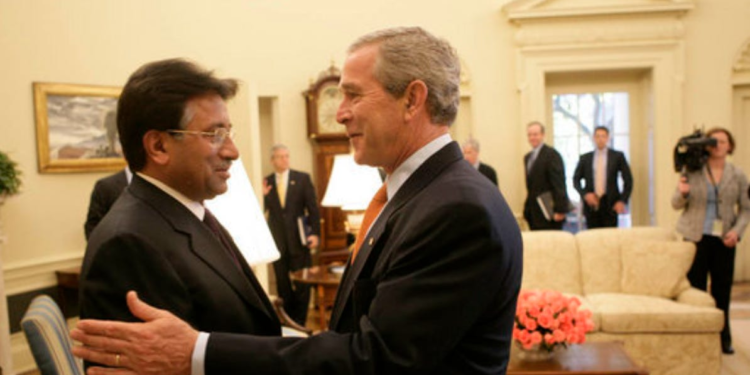
During the first year of the Obama administration, I spent months in the summer and fall of 2009 reporting about the Pakistani nuclear arsenal from here in Washington; from Islamabad, the Pakistani capital; from New Delhi, the Indian capital; and from London, where Pervez Musharraf, the former president of Pakistan as well a former army chief was living in exile. The story I eventually published in the New Yorker was edited slightly in accordance with a White House request that I did not contest.
The issues then and today are the same: Pakistan is a nuclear-armed nation. So is India, its rival, an on-and-off ally of both Russia and America that rarely, if ever, discusses its own nuclear capability. Pakistan did not perfect the process of enriching raw uranium ore to the level needed for weapons-grade uranium—more than 90 percent—until the mid-1980s, a decade after India had tested its first nuclear bomb, at which point it began producing bombs with no American interference. The Pakistani military is now estimated to have up to two hundred nuclear bombs, some of which have been miniaturized and are capable of being delivered by a fighter bomber. The hypocrisy of American presidents in ignoring the Pakistani progress while constantly urging nonproliferation elsewhere has been noted again and again by journalists here and elsewhere around the globe. Pakistan’s bomb became known in the worried West as the “Islamic bomb.”
Throughout this process, working closely at various times with Indian and Israeli intelligence, the United States has been in a constant cat-and-mouse game with Pakistan to keep count of the weapons, many stored in special containers known to US intelligence as igloos. The American fear, as I was told decades ago, is that some of the Pakistani warheads have been hidden in “the tall grass along a runway” on a Pakistani military airbase.
I finished my reporting and wrote a long piece—reporters always write stories that are too long—and it went through the usual processes of editing and fact checking and more editing.
As usual, I had promised anonymity to most of those on the inside, here and in Pakistan and India. My sources did their best to answer my questions. The exiled and reviled General Musharraf, whose eight years as president had been marred by allegations of unnecessary brutality and murder, surprised me—I had written critically about the Pakistani nuclear program—by agreeing to see me in London. He was outspoken in his talk with me—we met in his modest flat—and boasted about his success in having had a huge tunnel system constructed deep underground for the storage of nuclear weapons and their separate trigger mechanisms. The tunnels, he said, had the advantage of making it impossible for American satellites and our intelligence community—“Big Uncle,” as a Pakistani nuclear-weapons expert called our spying—to monitor what was going on below ground. Musharraf, while in the Pakistani army, had been in charge of the Special Services Group that, among other duties, was responsible for the security of the many nuclear weapons depots scattered at military bases and elsewhere around the nation.
Musharraf’s bragging about his success in hiding the nuclear arsenal was included in the revised edition of my story, as was a very tough lecture I received from one of the most prominent senior aides in the Pakistani government, who told me that he and others at the top were convinced that what the Obama really wanted was “control of our day-to-day deployment. But why should we give it to you? Even if there was a military coup d’état in Pakistan, no one is going to give up total control of our nuclear weapons. Never. Why are you not afraid of India’s nuclear weapons? Because India is your friend, and the longtime policies of America and India converge. Between you and the Indians, you will fuck us in every way. The truth is that our weapons are less of a problem for the Obama administration than finding a respectable way out of Afghanistan.”
The story closed—a common industry term meaning that it had been checked and edited and proofread—two days before the Friday midnight deadline to ship the magazine. I was called Thursday morning and told there was “high-level worry inside the White House” about the story, as edited, with all of the tough talk in it and concern that if it was published as it was there might be riots and protests throughout Pakistan. I was told that the White House was considering shutting US consulates throughout Pakistan and ordering the temporary removal of all American dependents from the embassy in Islamabad. None of this made sense to me—anxiety about the Pakistan arsenal was a constant and my story showed that American intelligence was on the job.
https://seymourhersh.substack.com/p/was-it-self-censorship






